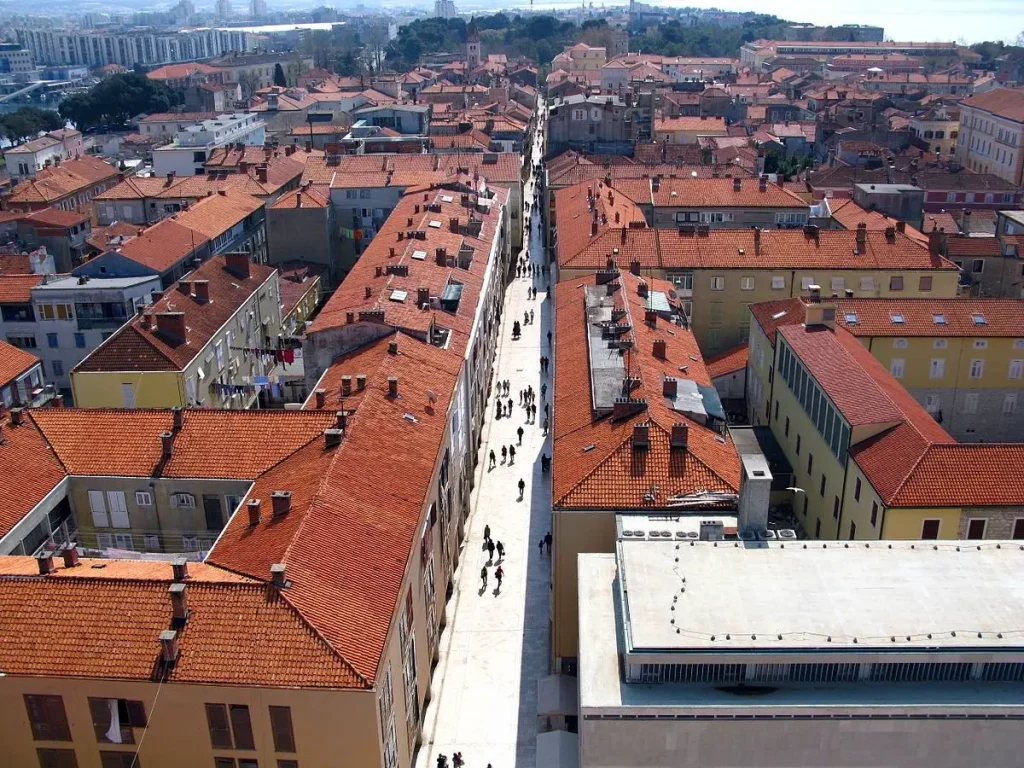June 6, 2020 — Hotels on Zadar’s historic peninsula are slowly starting to open their doors, but unfortunately, few guests are walking through them.
The Dalmatian town relies on small groups such as families or classmates, travelers from farther-flung corners of the world, or “city hopping” guests galavanting up and down the coast. There are none so far.
The small groups have suffered because of epidemiological measures limiting . Travelers making long trips have limited flight options. While “city hopping” has become a taboo issue, with isolation and social distancing remaining keys to staying healthy.
In short, Zadar’s usual guests can’t reach the city, or don’t want to, according to Zadarski List.
The Boutique Hostel Forum started welcoming guests on May 15, making it among the first to open. Its occupancy has been about 10 guests per day.
“The number of guests in the hostel fluctuates greatly from day to day and depends on the day of the week, so it is difficult to draw a parallel with last year’s figures, but from the opening on May 15 until today is about a dozen nights a day,” said Frane Sklobar, the hostel’s head of marketing. He added hostel guests often don’t book well in advance, making it difficult to forecast the rest of the year. But if the planes don’t start flying soon, things won’t improve.
“Without air travel, there will certainly be no significant shift,” Sklobar said. “Nevertheless, we believe that with the normalization of the overall situation and the introduction of air corridors, things will improve.”
Bastion and Art Hotel Kalelarga have not yet opened, although they are ready and will likely June 15 and July 1.
“We will open the Bastion when the works on [the city’s walls next to the hotel] near completion, when the access to the hotel is more or less decent, and the noise from the works is reduced,” said Mladenka Štura, who runs Bastion and Art Hotel Kalelarga. “As far as reservations are concerned, it is very bad and at the moment there are no indications that there will be any positive shift.”
Previous reservations have been canceled, by and large, she said, with guests from the United States and Brazil and other countries harder-hit pulling out the most. But Štura said she won’t give up.
“Although the hotels do not work, we work constantly,” she said. The hotels are promoting destinations and facilities, as well as sales. They’ve also put a premium on their epidemiological protection measures.
“We are only upgrading the standards, all in order to protect our workers and guests,” she said. “Nothing is a problem, we are ready, but there are simply no bookings.”
The situation doesn’t merit too many price drops or sales, Štura added.
“I don’t think prices play a role at the moment, but whether the borders are open, whether tests are needed, self-isolation upon returning home and so on. If we were to lower prices, we would have to lower the level of service, starting with the groceries for breakfast and so on in each segment onwards.”
Vjekoslav Bobić from the Almayer Hotel sees a similar dire situation unfolding.
“We opened, we are ready, and the guests … that’s another story,” he said. “A very large number of reservations have been canceled. Our guests are mostly from distant lands where epidemiological measures and travel restrictions are still in place.”
The hotel’s making adjustments, trying to reorient itself to other guests, locals and those to whom the borders are open and have the opportunity to travel.
“We need to fight, stay in the market, maintain the level of service,” Bobić said. “We really don’t have some too much ambition for this season.”
But Bobic’s motivations go beyond a profit.
“There are our employees. They are more than workers, we are a collective of a dozen people on whom as many families depend,” he said. “The hotel is a large system and has high costs even when it is not working. But we can’t shut up for a year now, keep quiet until it’s all over.”








